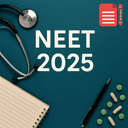The IIT JEE Advanced exam is one of the most challenging engineering entrance tests globally, requiring a blend of conceptual mastery, problem-solving speed, and strategic preparation. With limited time and vast syllabi, focusing on high-weightage and scoring chapters can significantly boost your rank. This article highlights the most important topics across Physics, Chemistry, and Mathematics, along with proven strategies to maximize your score.

Why Prioritize High-Weightage Chapters?
JEE Advanced rewards students who optimize their preparation by emphasizing chapters that frequently appear in the exam. These topics often:
- Carry higher marks per question.
- Form the foundation for interlinked concepts.
- Appear consistently across past papers.
- By mastering these areas, you can secure 60–70% of the total marks efficiently.
Physics: Key Chapters and Preparation Tips
Physics tests analytical thinking and application of principles. Focus on these high-scoring chapters:
- Mechanics
- Topics: Newton’s Laws, Work-Energy Theorem, Rotational Dynamics, Gravitation.
- Weightage: 30–35% of Physics section.
- Tip: Practice pulley systems, circular motion, and collision problems.
- Electrodynamics
- Topics: Capacitors, Electrostatics, Current Electricity, EMI, AC Circuits.
- Weightage: 25–30%.
- Tip: Master Kirchhoff’s Laws, RC/LC circuits, and Maxwell’s Equations.
- Modern Physics
- Topics: Photoelectric Effect, Atomic Structure, Nuclear Physics.
- Weightage: 15–20%.
- Tip: Focus on formula-based problems and theory.
- Thermodynamics and Waves
- Topics: Laws of Thermodynamics, SHM, Sound Waves.
- Weightage: 10–15%.
Chemistry: Top Chapters to Target
Chemistry is divided into Organic, Inorganic, and Physical segments. Prioritize these chapters:
- Organic Chemistry
- Topics: Reaction Mechanisms, Named Reactions, Biomolecules.
- Weightage: 30–35%.
- Tip: Create reaction charts and practice stereochemistry.
- Physical Chemistry
- Topics: Chemical Kinetics, Thermodynamics, Electrochemistry.
- Weightage: 25–30%.
- Tip: Solve numericals on Arrhenius Equation and Nernst Equation.
- Inorganic Chemistry
- Topics: Coordination Compounds, Periodic Table Trends, Metallurgy.
- Weightage: 20–25%.
- Tip: Memorize exceptions and chemical bonding diagrams.
Mathematics: High-Scoring Areas
Mathematics demands precision and speed. Focus on:
- Calculus
- Topics: Limits, Continuity, Differentiation, Integration, Differential Equations.
- Weightage: 35–40%.
- Tip: Practice integration techniques and area-under-curve problems.
- Algebra
- Topics: Complex Numbers, Quadratic Equations, Matrices, Probability.
- Weightage: 25–30%.
- Tip: Strengthen permutation-combination and sequence-series concepts.
- Coordinate Geometry
- Topics: Conic Sections, Straight Lines, Circles.
- Weightage: 15–20%.
- Tip: Solve JEE-specific problems on parabola and hyperbola.
- Vectors & 3D Geometry
- Topics: Vector Operations, Planes, Lines in 3D.
- Weightage: 10–15%.
Proven Strategies to Maximize Scores
- Analyze Past Papers: Identify recurring topics and question patterns.
- Mock Tests: Simulate exam conditions to improve time management.
- Conceptual Clarity: Use NCERT and reference books (e.g., HC Verma, OP Tandon).
- Short Notes: Prepare formula sheets for quick revision.
- Focus on Weaknesses: Allocate extra time to low-scoring areas.
Common Mistakes to Avoid in JEE Advanced
Even top aspirants lose marks due to avoidable errors. Stay alert to these pitfalls:
- Ignoring NCERT Basics:
- Chemistry: Overlooking NCERT diagrams (e.g., orbital shapes, polymer structures) and inorganic reaction mechanisms.
- Physics: Skipping foundational derivations (e.g., Ohm’s Law, lens/mirror formulas).
- Overcomplicating Problems:
- In Maths, students often miss simple substitutions in integration or algebraic identities.
- Neglecting Units/Dimensions:
- 20% of physics errors arise from unit mismatches (e.g., using radians instead of degrees).
- Rushing Through Organic Conversions:
- Missing intermediate steps in reaction mechanisms (e.g., Grignard reactions) leads to incomplete answers.
Time Management: A 3-Phase Study Plan
Divide your prep into phases for systematic coverage:
- Phase 1 (Months 1–4): Foundation Building
- Focus 60% time on high-weightage chapters (e.g., Calculus, Electrochemistry, Rotational Dynamics).
- Solve 50+ numericals per chapter from HC Verma (Physics), JD Lee (Inorganic), and Cengage (Maths).
- Phase 2 (Months 5–8): Advanced Practice
- Tackle JEE Advanced archives (2010–2023 papers).
- Join test series for mock exams (aim for 15+ full-length tests).
- Phase 3 (Last 2 Months): Speed & Accuracy
- Revise using formula sheets and error logs.
- Prioritize 10-year recurring topics (e.g., Probability in Maths, Electrostatics in Physics).
Subject-Specific Hacks for Quick Wins
Physics
- Optics: Use sign conventions rigorously to avoid coordinate errors.
- EM Waves: Link theory (e.g., displacement current) to Maxwell’s equations for 2-mark MCQs.
Chemistry
- Organic Name Reactions: Create mnemonics (e.g., “Hoffman → H elimination” for Hoffman Bromamide).
- Coordination Compounds: Master crystal field splitting diagrams for quick hybridization questions.
- Periodic Table: Focus on exception trends (e.g., N has higher ionization energy than O).
Mathematics
- Calculus: Practice “Integration by Parts” using the LIATE rule (Logarithmic, Inverse Trig, Algebraic, Trig, Exponential).
- Probability: Use binary logic for Bayes’ theorem problems (e.g., coin toss sequences).
- Coordinate Geometry: For hyperbola problems, remember
Recent Trends in JEE Advanced (2022–2023)
- Increased Interlinking of Topics:
- Physics: Questions combining Thermodynamics with Mechanics (e.g., heat engines in pulley systems).
- Chemistry: Organic reactions tied to environmental chemistry (e.g., ozone depletion mechanisms).
- Numerical-Based Questions (NBQs):
- 30% of Maths questions now require decimal answers (e.g., definite integrals, probability values).
- Assertion-Reasoning in Chemistry:
- Inorganic chemistry saw a spike in assertion-reasoning questions (e.g., comparing ionic radii of transition metals).
Top 5 Recommended Books for High-Weightage Topics
- Physics: Concepts of Physics by HC Verma (Vol 1 & 2) for Mechanics and Electrodynamics.
- Organic Chemistry: Organic Chemistry by Morrison & Boyd for reaction mechanisms.
- Inorganic Chemistry: NCERT + JD Lee for exception-based theory.
- Mathematics: Cengage Series for Calculus and Algebra (detailed problem sets).
- Practice: Previous 40 Years’ Solved Papers by Disha Publications for pattern analysis.
Last-Month Revision Strategy
- Daily Mock Tests: Simulate exam timing (9 AM–12 PM) to build stamina.
- Focus on Weak Zones: Allocate 2 hours daily to low-scoring topics (e.g., 3D Geometry, Nuclear Chemistry).
- Formula Sheets: Stick them on your wall—revise while taking breaks!
- Mind Maps: Create topic linkages (e.g., link Electrochemistry to Redox Reactions in Chemistry).
Pro Tip from Toppers
“Solve 10–15 single-topic tests weekly in the final month. It sharpens topic-specific speed and exposes gaps.”
— AIR 12, JEE Advanced 2023
Final Checklist Before Exam Day
- Revise all NCERT diagrams (especially Chemistry).
- Practice 5+ matrix-match questions daily (common in Physics and Chemistry).
- Master dimensional analysis to verify answers quickly.
- Sleep 7+ hours nightly—mental fatigue costs marks!
FAQs on High-Weightage and Scoring Chapters for IIT JEE Advanced
Here are answers to the most common questions about optimizing your JEE Advanced preparation:
1. Which chapters have the highest weightage in JEE Advanced?
Physics:
- Mechanics (30–35%)
- Electrodynamics (25–30%)
- Modern Physics (15–20%)
- Chemistry:
- Organic Chemistry (30–35%)
- Physical Chemistry (25–30%)
- Inorganic Chemistry (20–25%)
- Mathematics:
- Calculus (35–40%)
- Algebra (25–30%)
- Coordinate Geometry (15–20%)
2. How to balance preparation between all three subjects?
- Daily Split: Dedicate 2–3 hours to each subject.
- Weekly Focus: Rotate priority between weaker subjects and high-weightage chapters.
- Mock Tests: Analyze mock results to allocate time proportionally.
3. Is NCERT enough for JEE Advanced Chemistry?
- Inorganic & Physical Chemistry: NCERT is mandatory for theory, diagrams, and exceptions.
- Organic Chemistry: Supplement NCERT with advanced books like Morrison & Boyd for mechanisms.
4. How to improve problem-solving speed?
- Time-Bound Practice: Solve 15–20 problems daily with a timer.
- Shortcuts: Learn tricks for integration, matrix operations, and unit conversions.
- Avoid Overthinking: Flag time-consuming questions and revisit them later.
5. Are numerical-based questions (NBQs) important?
Yes! Recent trends show 30% of Maths and Physics questions are NBQs. Practice:
- Definite integrals
- Probability values
- Electrochemistry calculations (e.g., EMF of cells).
6. How to handle negative marking?
- Avoid Guesswork: Attempt only if you’ve narrowed down to 2 options.
- Partial Marking: In multi-correct MCQs, mark only 100% sure choices.
- Focus on Accuracy: Prioritize quality over quantity.
- Flashcards: Write formulas with examples
- Daily Revision: Spend 20 minutes revising 10–15 formulas.
- Apply in Problems: Use formulas in mock tests to retain them better.
8. Which topics can be skipped if short on time?
- Physics: Archimedes’ Principle, specific heat of gases.
- Chemistry: Environmental Chemistry (focus only on ozone depletion).
- Maths: Statistics (if basics are clear).
9. How to stay motivated during preparation?
- Set Small Goals: Complete 5 integration problems daily or revise 2 organic reactions.
- Track Progress: Use apps like Notion or Excel to log completed topics.
- Reward Yourself: Take breaks after achieving weekly targets.
10. What to do in the last month before the exam?
- Mock Tests: Take 2–3 full-length mocks weekly.
- Error Logs: Review mistakes from past tests.
- NCERT Sprint: Revise diagrams, named reactions, and key definitions.
11. Are coaching materials necessary?
Coaching notes are helpful but not mandatory. Focus on:
- Books: HC Verma, Cengage, and JD Lee.
- Past Papers: Analyze 10+ years of JEE Advanced questions.
12. How to tackle assertion-reasoning questions?
- Step 1: Verify if the assertion is true.
- Step 2: Check if the reason explains the assertion correctly.
- Common Traps: Look for "partially correct" explanations (e.g., in Periodic Table trends).
13. Is modern physics scoring?
Yes! Modern Physics (Photoelectric Effect, Nuclear Physics) is theory-heavy and formula-based. Focus on:
- Einstein’s photoelectric equation.
- Radioactivity decay laws.
- De Broglie wavelength.
14. How much time to spend per question?
- Maths/Physics: 3–4 minutes per question.
- Chemistry: 2–3 minutes (theory-based questions are quicker).
- Priority: Solve 1-mark questions first to secure easy marks.
15. What after the exam?
- Analyze Performance: Use answer keys to estimate scores.
- Prepare for JEE Main Counselling: Keep documents ready.
- Explore Alternatives: Research other top engineering colleges (BITS, NITs).
Important Notes for IIT 2025 Revision Notes (Notesly)
Boost your prep with top-rated Jee advance Notesly resources:
| Subject | Topic | Highlights | Notes |
| Maths | Maths | NCERT-based concept maps | Mathematics |
| Physics | Modern Physics | Key formulas & PYQ trends | Physics |
| Chemistry | Organic Reactions | Named mechanisms + diagrams | Chemistry |
Explore these insightful articles on Notesly to enhance your IIT Jee Advance preparation:
Articles for NEET 2025
- Crack NEET with Confidence
- NEET Cutoff Prediction 2025
- NEET Exam Day Strategies
- NEET 10-Year Cutoff Analysis


















